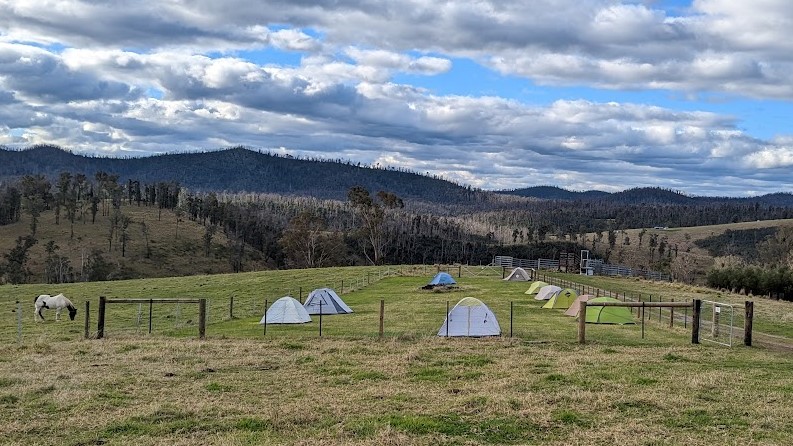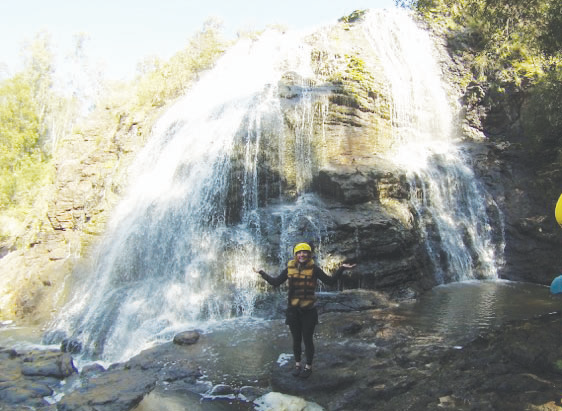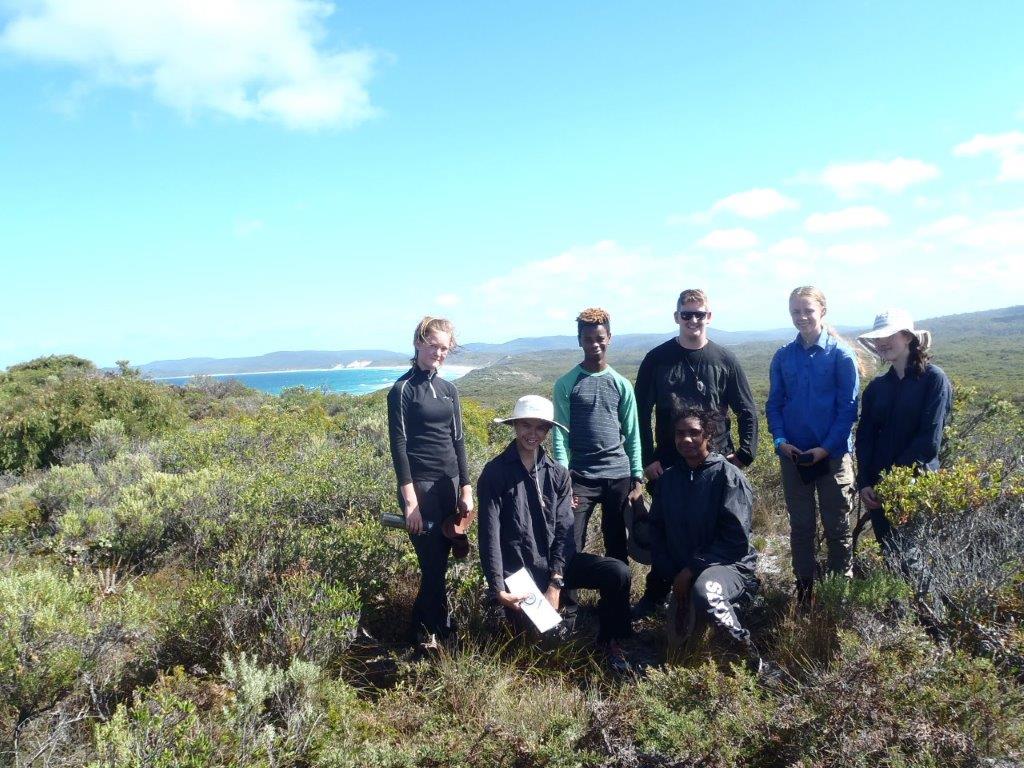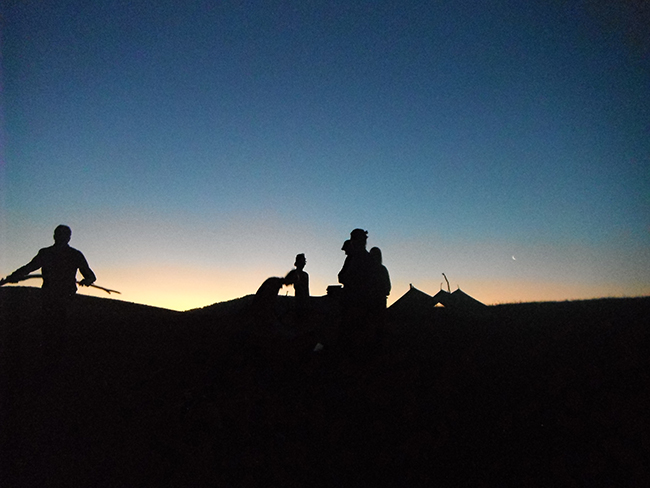Recently I (Ben Lovell) swapped my desk for the beautiful environment of the Outward Bound Australia (OBA) site on the Snowy River, not far away from the town of Buchan in Victoria. Outward Bound has been running programs at the “The Snowies” for many years, but more recently using a dedicated site gifted for our use thanks to the generosity of local landowner, Kev Heyhoe. Many participants to the area have lasting memories of rafting down the iconic Snowy River, marveling at the views as they abseiled at Rocky Knob or exploring the wonders underground at Wilson’s cave.
Devastating Bushfires
But in the Summer of 2019-20 devastating bushfires severely impacted this region (and many other places around the country) and for OBA as well as the people and communities, the effects were profound.
The Black Summer fires near Buchan started in late November 2019 from a series of lightning strikes and by the end of the year they had combined to form a mega fire of more than 130,000 ha. These fires burned with such intensity that they created their own pyro cumulonimbus clouds that generated local thunder and lightning.
By mid-February 2020, the Snowy Complex fire was the only major fire still burning in the State. It had now burned through 663,000 ha of bushland and was eventually declared contained on 27 February, after almost 3 months of devastation. The bushfire caused a major impact to the region and caused the loss of people’s homes, land and stock, as well as severely impacting critical animal habitats and water catchments. (source: https://knowledge.aidr.org.au/resources/black-summer-bushfires-vic-2019-20/ )
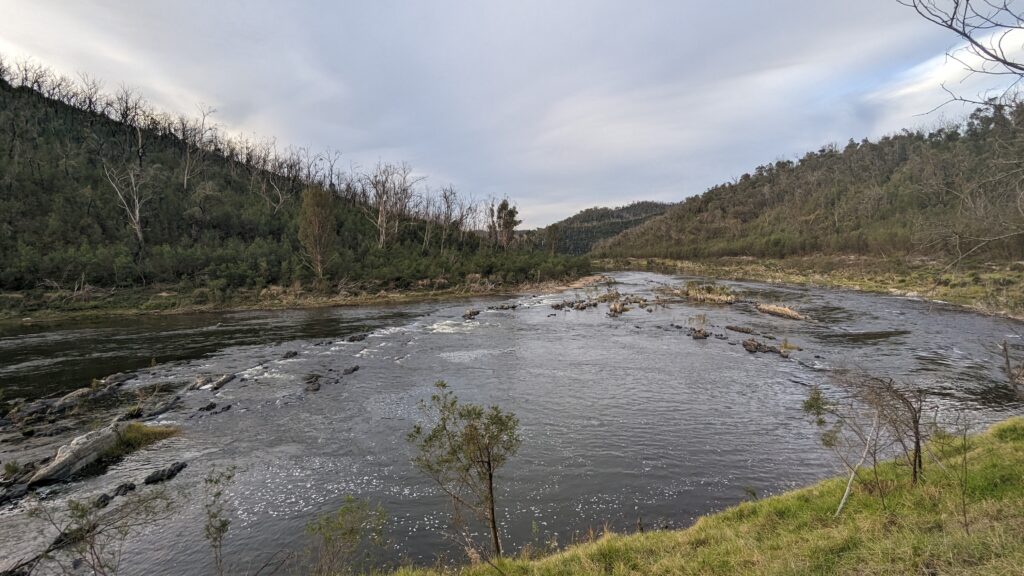
(Looking down the Murry River, showing evidence of the bushfires that affected the land on the left-hand side of the river)
OBA’s programs at The Snowies were obviously cancelled because of the significant damage these bushfires created to our site and program area, as well as introduced additional risks from tree falls, erosion, water pollution, track damage, and eventually added new costs to scout new areas for safe camping and hiking.
Of course, these environmental challenges were compounded by the effects of the COVID-19 pandemic, with lockdowns and travel restrictions preventing participants from outdoor programs, and our staff movement restricted to areas that were able to operate.
All of this painted a dire picture for the future capabilities of running outdoor programs in this area.
Bushfire Recovery
Fast forward to 2022 and OBA began to run programs in the Snowies again, mainly due to the Positive Start Initiative that the Victorian Government put in place to help assist kids with their transition back to the physical learning environment after a long period of lockdowns. ‘
OBA was also successful in obtaining a Bushfire Recovery Grant from the Federal Government which helped us rebuild parts of the circuit at The Snowies, and also add new infrastructure – such as composting toilets and shelters – in order to make the experience better for participants.
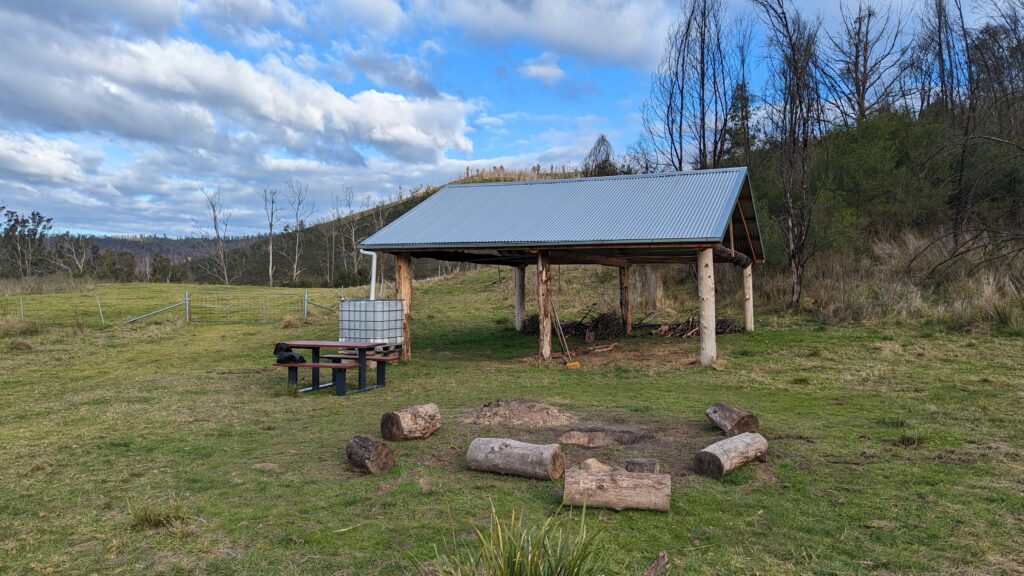
(One of our newly built shelters funded by the Bushfire Recovery Grant from the Federal Government)
So, having recently started at OBA, I thought that it would be good idea to head out to The Snowies and see a program in action (watch this recent Trafalgar High video to see a program for yourself), but I was also very interested in seeing how the bush was regenerating and see for myself the impact the fires were still having on the OBA community and programs some 3 ½ years later.
The Australian bush is an amazing resilient thing. Even after a devastating bushfire only a few years back, the re-growth is thick, the animals are abundant, and the creeks and waterways are healthy. Of course, the visual impact is still considerably noticeable, but in only a couple of days I regularly saw lyrebirds, koalas, wombats, possums, wedge-tail eagles, and plenty of small birds flitting across the tracks. Unfortunately, there were also plenty of pest animals which often grow in number in areas after a bushfire; the main culprits being deer, foxes, rabbits, goats and pigs.
It is without a doubt that the programs for OBA at The Snowies have had to adapt due to the impact of the bushfires. The re-growth is so thick in areas, it has made previous walking tracks impassable. Of course, in time, the OB highway will trample new tracks through the area, but in the meantime a participant’s experience is disrupted by a necessary bus shuttle to get around this issue.
Unfortunately, the impacts of the climate crisis will continue to add significant risk to outdoor education experiences in Australia, and particularly to the outdoor staff who help facilitate them. Knowing that the risks associated with climate change are shared with others across a dispersed and often localised outdoor sector, OBA has initiated a coordinated programs of research and capacity building to help respond and adapt to these risks and reduce the impact that the changing climate brings to the land we work on.
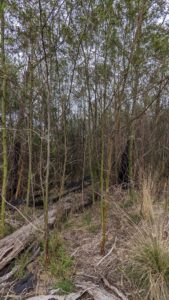
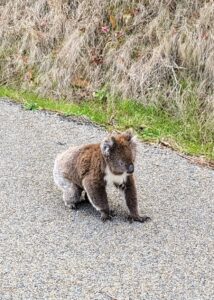
(A hiking path commonly used before the fires, now almost unrecognisable from the bush’s regrowth [left], and a Koala seen out in the open, now an even rarer sight after the fires [right]).
The National Centre for Outdoor Risk and Readiness
The National Centre for Outdoor Risk and Readiness – NatCORR – is an initiative by Outward Bound Australia to help support and prepare the outdoor sector in responding to and adapting to the climate crisis. It aims to build capacity and capabilities within the outdoor sector, to help predict, prepare for, and respond to catastrophic events, and to learn and adapt as a group so we can all become more resilient and safer in face of a changing climate.
The story of the Outward Bound Australia’s site at The Snowies is just one small narrative that sits across many in our great, wide land. Responding to an ever-changing climate is not a new “thing” in outdoor education programs. In fact, it is a significant part of very nature of what we do. But as the climate warms and conditions change and intensify dramatically, bushfires, floods and other environmental impacts will become more frequent and damaging.
Our hope is that the NatCORR initiative will help the sector predict, better prepare for, mitigate and respond to the climate crisis through learning, education and collaboration. In the meantime, everyone at OBA is super pleased to be back running programs at The Snowies again, and in some small way giving back to community and environment that gives so much to us all.
Written by: Ben Lovell (Head of Partnerships & Development)
